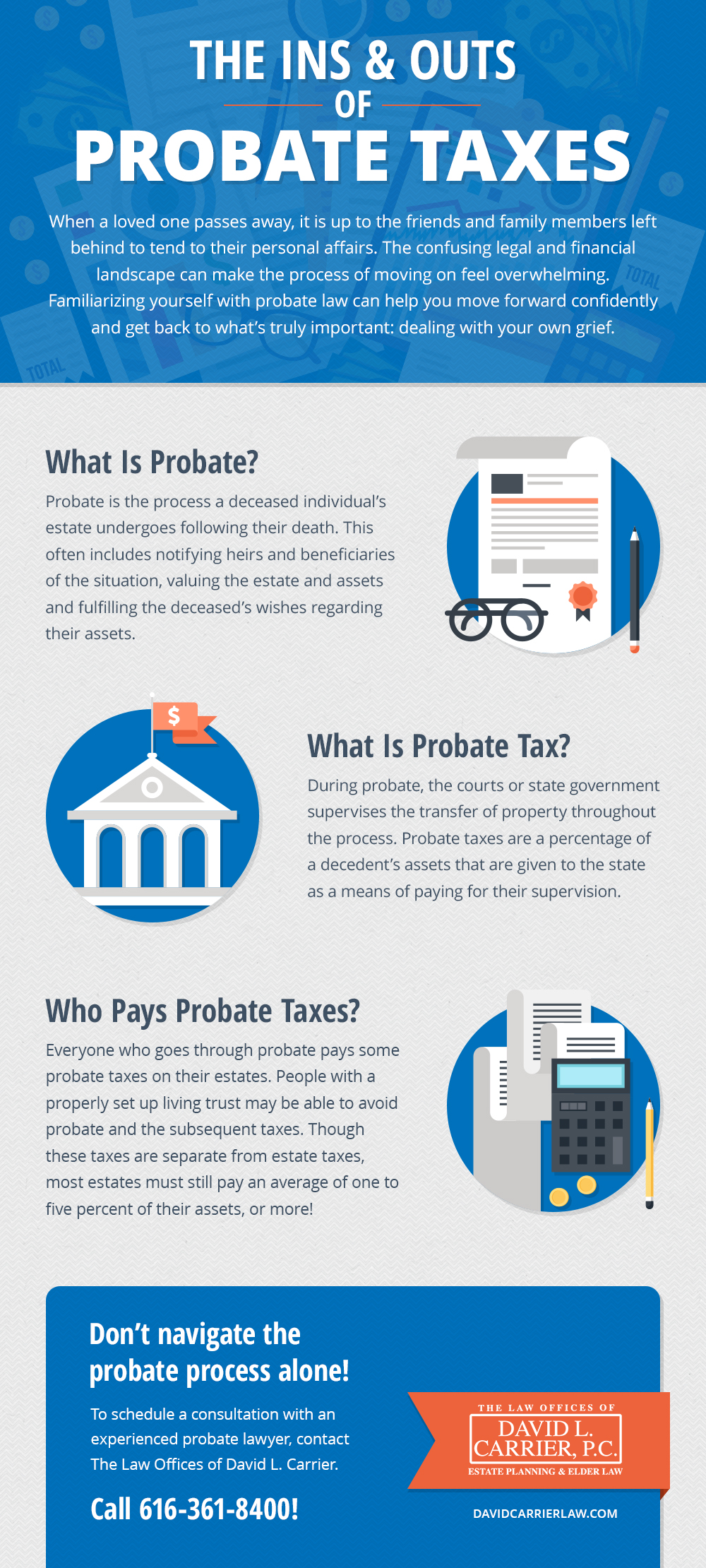Neither Snow Nor Rain Nor Heat Nor Gloom Of Night Will Make Us Correct Spelling Or Grammatical Errors
(Sprightly Commentary That Is Not Legal Advice!)
I have been living in a family home, caring for a parent and grandparent for 19 years. Can I get compensated monetarily?
In 2003, I received a phone call from my mother in distress, stating she would have to put my grandmother in the nursing home because it was too much for her to take care of. I liquidated my assets, relocated, and moved into my grandmother’s home till she passed. A few years passed, my mother’s husband died, and I was asked to move into her home to help take care of the property. She was diagnosed with cancer, so it was assumed my responsibility to carry on caregiving. I have never been paid for service or compensated. I have not paid rent. By law can I get financially compensated?
Virtue Had Better Be Its Own Reward
Are all good-hearted people puddin’ heads? Surely not! But what person with common sense would abandon their own path in life to serve family members? A kind and generous person, of course. Kindness and generosity are wonderful traits. But so are practicality, prudence, and planning.
An individual sacrificing their own life choices can be truly noble. At least at the beginning. Our letter writer is now learning a bitter 20-year lesson. Caring for grandma and mom does not contribute to the Individual Retirement Account. Nor does it help you with Social Security. Last I checked, the Mom & Grandma Pension Fund was also out of business.
“I have never been paid for service or compensated.” What?! Do you wonder what our writer has been doing for “spending money” these last 20 years? Me too.
Will this story have a happy ending? Do not count on it.
“By Law Can I Get Financially Compensated?”
No. Not a brass farthing. Not a penny. You care for a loved one. Why? Because you love them. Did you do it for money? No. You did it for love. And the Law will hold you to it. You cannot convert a love relationship into a commercial relationship. When you care for a loved one, the law presumes that you are doing so because you love that person. End. Of. Story.
And if Mom or Grandma does pay you? Medicaid will whack them with a PENALTY when they need help with long-term care. Unless you meet the stringent Medicaid requirements for a personal care contract. Which you will not meet because you did not even know that there were such things as Medicaid Personal Care Contracts.
When you care for your parent or grandparent, be sure to have a contract. Your friendly, neighborhood elder law attorney can help. Maybe you can avoid Medicaid penalties. At least you’ll get paid. Eventually. The contract must be in writing. The contract must state the terms of the agreement. The contract must be signed, sealed, and delivered before the services are provided. The contract cannot be signed via Power of Attorney when the caregiver is also the Agent under the Power of Attorney.
But you didn’t do that this time. Better luck next time! Would it be a bad idea to talk with an elder law attorney?
What’s Next?
Maybe your siblings will let you stay in the house. They often do. Maybe your siblings will evict you and sell the old homestead. They often do. You will get your piddling share. Good luck living on those crumbs. Occasionally, brothers and sisters may give you more than an equal share. And that’s nice. But can you count on the generosity of your overworked, underpaid, and extremely busy siblings? Siblings who have bills of their own? You decide, but I doubt it.
But I Want To Take Care Of My Loved Ones!
If you really want to take care of your ailing loved ones, you are in a shrinking minority. Fewer and fewer people are motivated by pure love or guilty obligation anymore. Not so long ago there was a “sandwich generation”. Trapped between caring for parents and caring for little kids, the sandwich generation did double duty. Such family service was expected. Caring for older relatives was assumed. Having kids was no excuse. And spouses offered at least lukewarm support.
Those days (in my experience) are gone. COVID accelerated the process, but it was already happening. Paid care is the way we do it today. Can you get compensated? Yes if you follow the 3 P’s: Practicality, Prudence, Planning. Your elder law attorney can help!
I have a question about Medicaid requirements for my mother who is likely going to assisted living in the near future?
My mother is 81 and psychiatric. She recently became ill… The evaluation of her so far indicates that she’s going to need 24 hour care. She is a widow… Her income level is and always has been under the threshold to qualify for Medicaid (currently $2392.81) and the only other asset she has is her house. I am joint on her checking and savings account as I have been handling all of her bills for the last five years or so. At least half the 115 thousand miles that I have on my vehicle, have come from caring for her, including picking up and administering medication’s, doctors appointments, groceries, meals and so forth. I have paid for expenses in those cases from her account as required. Given that her income level is under the Medicaid threshold regardless , is Medicaid still going to potentially penalize and disqualify her from assisted living?
Who Says Kids Don’t Care? Oh, That Was Me…
Two letters from loving, caring, self-sacrificing kids. Gives you hope. Restores your faith in human nature. And looks like this child caregiver steered clear of the hazards.
2023 Medicaid Income Limit: $2742/Month
There is no Michigan income limit for skilled nursing home Medicaid. Does not matter how much income you have, you can qualify for skilled nursing home care, so long as the care costs more than your income.
There is a Michigan income limit for at-home care and for assisted living care. In 2023, that limit is $2742 per month. Before deductions for Medicare or taxes or insurance.
So. If your gross monthly income is greater than $2742, Medicaid will only pay for skilled nursing care in a skilled nursing facility, i.e. a nursing home. That means Medicaid will not pay for assisted living or at-home care such as the Program of All-inclusive Care for the Elderly (PACE). Our writer’s mom qualifies for assisted living Medicaid, on the income test, for Medicaid. That is because $2392.81 is less than $2742.00. If mom’s gross income was more that $2742, there is no way for mom to qualify for assisted living or at-home care Medicaid. In Michigan. NOTE: In almost all other states in the USA, folks can create a “Miller Trust” or “Qualified Income Trust” to reduce their income. This allows them to qualify for Medicaid benefits and stay home. Or go to assisted living. But not in Michigan. Too bad. So sad.
Income Looking Good… What Else Could Go Wrong?
If mom has given you money, that is a problem. If you have used mom’s money to pay mom’s expenses, that is NO problem. What has me worried (or at least curious) is your statement:
At least half the 115 thousand miles that I have on my vehicle, have come from caring for her, including picking up and administering medication’s, doctors appointments, groceries, meals and so forth. I have paid for expenses in those cases from her account as required.
Many times children caregivers will spend their own money on mom’s groceries, meals, and so forth, then get reimbursed by mom. It does not matter than you took notes or saved receipts. That method creates divestment penalties. That is bad. The better way is to use mom’s debit card or check book to buy her stuff. It is very clear that when mom’s money is used to buy mom’s stuff, there is no problem. But.
What if mom’s money is used to buy stuff for the child caregiver? That is bad. That is a divestment. That creates a penalty period. How many meals were for mom? Were the caregiver’s groceries purchased with mom’s debit card? Mom paid for gasoline. Was all the gasoline used in pursuit of mom’s errands? These are the sort of awkward questions that the Medicaid caseworker may raise. What if the answers are unsatisfactory? Mom will be penalized. Always a good idea for your super expert elder law attorney to take a sharp-eyed look at mom’s Medicaid application before you submit it. And the best bet is to get assistance every step of the way.
Avoid Nursing Home Poverty
You can get long-term care benefits without going broke. Medicaid wants you broke. But you do not have to accept what Medicaid wants. You can protect what you have earned. Here’s how:
How Medicaid Works
What If You Give Away Your Stuff?
What if you give away your stuff and then apply for Medicaid benefits? Medicaid will say, “We will not help you. You had stuff and gave it away. And so we will not pay.” This is called the “Penalty Period.” Medicaid will excuse itself for a period of time. The more you gave away, the longer Medicaid will not pay. Right now, for every $10,000 you give away, Medicaid will not pay for a month. Give away $120,000, Medicaid will not pay for an entire year! But then Medicaid will pay.
In the meantime, while Medicaid is not paying, the nursing home is suing you. And your kids. And your friends, And your first-grade teacher. And anyone else you gave stuff to. You thought you could keep the house? Ha-ha. You thought you could keep an automobile. Yuk-yuk. Whoops! Funny thing, though. What if you gave away your stuff more than five (5) years ago? What if sixty-one (61) months ago you gave all that stuff away? Then you applied for Medicaid? Things are different. Now Medicaid does not care that you ever had that stuff at all. Does not matter. So perhaps you should give all your stuff away. Right now. To the kids. Your neighbors. Your first-grade teacher. Then wait for five (5) years. And if you ever need long- term care after that, no problem! Medicaid does not care that you had that stuff and gave it away. Great Plan!
By now, the sharpest knives in the drawer have spotted the problem with this brilliant approach, right? If you give your stuff away, then you have no stuff. And you like your stuff. What to do?
What If You Give Away Your Stuff Without Giving Away Your Stuff?
How can you give away your stuff without giving away your stuff? By using a particular kind of trust, that’s how. For Medicaid purposes, you gave your stuff away. For federal tax purposes, state tax purposes, common sense purposes, you did not give your stuff away.
The IRS doesn’t think you did anything when you put your assets in this type of trust. Medicaid says you “divested” those assets. Medicaid says you gave those assets away. Medicaid starts the Five-Year Clock. Five (5) years after putting those assets into that trust, Medicaid will not count those assets as yours. And you will qualify for the Medicaid benefits you have paid for. Without sacrificing your lifesavings, cottage, other stuff.
Why Should You Want To Qualify For Medicaid Benefits And Keep Your Stuff? Why? Do you like paying for the same thing twice?
Are you opposed to getting any return on your tax dollars? Does the government know what to do with your money better than you do? Would it be dreadful to receive the government benefits you’ve paid for? And to have additional lifesavings to purchase additional goods and services? Is it awful to get the same deal from the government that irresponsible folks get? Would you prefer to be flat, busted broke and forced to go to a nursing home than to supplement at-home Medicaid with lifesavings to remain at home? Are your kids and grandchildren so undeserving and ungrateful that you’d rather give your money to the government?
This Is Too Good To Be True! Tricksy Stuff Like This Never Works For Regular Folks!
Plus, It Must Be Wrong Or Immoral Or Something Else That’s Bad Or My Planners Would Have Told Me All About It! And What If I Move Out Of State? And Give Me A Minute And I’ll Think Of Something Else…
On February 8, 2006, Congress overhauled the Medicaid system. Congress replaced 50 states going in 50 different directions with some general principles that apply to everybody. Seventeen years ago, I was shocked when this happened. The Medicaid landscape was rewritten, much to the distress of our long-term care clients. Tools and techniques that had been proven reliable were wiped out. But there was a silver lining to this dark cloud of Medicaid reform.
No longer did it make sense to wait-and-see. The environment was different. Now we had some assurance that a Michigan plan could work in Florida. Or Texas. Or South Carolina. But not California, nothing works in California.
Not only did we have a legal structure that worked from coast to coast, but we could also rely on that structure to be stable. And so, it has proved. Over the last 17 years, thousands of these LifePlanning™ trusts have been implemented by regular folks. And they have worked. Every time. Saving millions of dollars. For regular folks. To maintain dignity. To preserve families. To keep the promise that hard work, saving, planning, and doing the right things will have good consequences for you, your spouse, your family.
For every Medicaid application involving these trusts, we submit a full copy of the trust and all the supporting documents. Total disclosure. Candid honesty. Written evidence. Full documentation. This stuff works because we scrupulously, thoroughly, exhaustively comply with every law, rule, precept, and policy.
Going broke is a choice. Your choice. It is not chance, bad luck, or misfortune.
Why Don’t You Deserve A Little Payback For All The Taxes You Paid In?
Why Do You Want To Spend Your Last Nickel On Long-Term Care?
Why Shouldn’t The Government Spend Your Money For You?
Traditional estate planning is concerned with avoiding probate, saving taxes, and dumping your leftover stuff on your beneficiaries. After you die. Nobody cares what happens to you while you are alive. How does that help anyone? Stupid.
Traditional estate planning fails because the overwhelming majority of us will need long-term skilled care. 70% of us. For an average of 3 years. And we will go broke paying for it.
Is it surprising that thousands of recreation properties: cottages, cabins, hunting land, are lost to pay for long-term care? Why is your estate planner hurting you and your family? It is evil intent? Or stupidity?
LifePlanning™ defeats Nursing Home Poverty. Keep your stuff. Get the care you have already paid for. Good for you. Good for your family. Good example for society,
When my mother suffered from the dementia which led to her death, over 10 years ago, their estate plan preserved their lifesavings. Mom’s months in the nursing home did not mean Dad’s impoverishment. Dad spent the last years with security and peace of mind.
Is Now A Bad Time For A Real Solution?
Perhaps you think you already have an answer to this problem. Maybe you do not see this as a problem at all. It is possible that you do not believe in the passage of time or its effects on you.
Peace of mind and financial security are waiting for everyone who practices LifePlanning™. You know that peace only begins with financial security. Are legal documents the most important? Is avoiding probate the best you can do for yourself or your loved ones? Is family about inheritance? Or are these things only significant to support the foundation of your family?
Do you think finding the best care is easy? Do you want to get lost in the overwhelming flood of claims and promises? Or would you like straight answers?
Well, here you are. Now you know. No excuses. Get information, insight, inspiration. It is your turn. Ignore the message? Invite poverty? Or get the freely offered information. To make wise decisions. For you. For your loved ones.
The LifePlan™ Workshop has been the first step on the path to security and peace for thousands of families. Why not your family?







